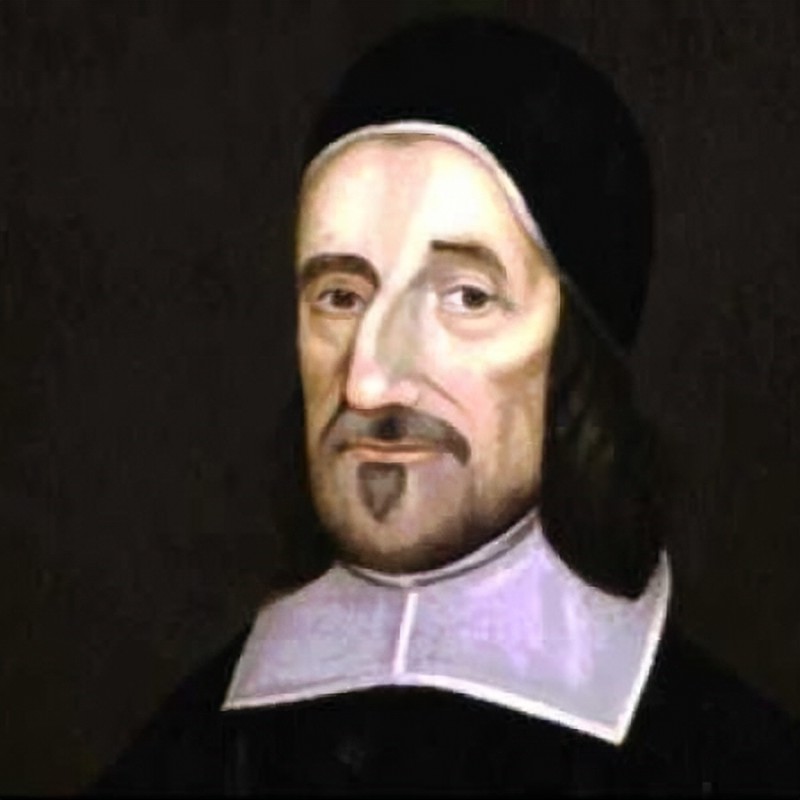On 14 June the Church of England remembers Puritan Divine, Richard Baxter, known for his book ‘The Reformed Pastor’ first published in 1656 (I have a copy!).
But who was Richard Baxter?
Richard Baxter was born at Rowton in Shropshire in 1615 and educated at Donnington Free School in nearby Wroxeter. He was ordained deacon by the Bishop of Worcester in 1638. He was successively master of a school in Dudley, and curate first of Bridgnorth then of Kidderminster until civil war broke out in 1642.
Though he served as a chaplain in the Parliamentary army for five years Baxter was always a moderate. He sought to curb the excesses of the Parliamentary troops and opposed both the execution of the king and Cromwell’s assumption of power. Baxter returned to Kidderminster as vicar in 1647. His ministry among the ‘ignorant, rude and revelling people’ of the town was remarkable. In addition to his preaching ministry Baxter set about implementing a policy of systematic parochial catechizing. So successful was this practice that five galleries were built in the parish church in order to accommodate the much larger number of churchgoers.
The Reformed Pastor, published in1656, was Baxter’s own account of this ministry (‘Reformed’ in this context meant not Calvinistic in doctrine but renewed in practice) and the book was both read and warmly recommended by the leaders of the evangelical revival of the following century.
Baxter was among those who invited Charles II to return in 1660 and his reward was to be offered the bishopric of Hereford. But, still questioning the nature and necessity of episcopacy after what he had seen of it in the years leading up to the Civil War, he declined and thus effectively ended his career in the Anglican ministry.
At the 1661 Savoy Conference Baxter presented the ‘Exceptions’ – proposed changes to the Book of Common Prayer from a Puritan standpoint, most of which were rejected. But once again he appeared as the voice of moderation, producing a reformed eucharistic liturgy that satisfied neither Puritans nor Laudians.
Following the 1662 Act of Uniformity, Baxter lived privately in and around London. He suffered a great deal of petty persecution and was twice imprisoned. His second imprisonment, when he was 70, was for 21 months at the hands of the notorious Judge Jeffreys, for alleged sedition in his Paraphrase of the New Testament (1685).
An advocate of moderation, toleration and fellowship across denominational divides he recognized that ‘God breaketh not all men’s hearts alike’ and welcomed the Toleration Act of 1689. He died in London in 1691.
A Prayer of Richard Baxter
Eternal, Almighty, and most gracious God:
heaven is your throne, and earth is your footstool;
holy and reverend is your name;
you are praised by the angels of heaven,
and in the gathering of your church on earth.
Despite our unworthiness,
you have invited us through our mediator, Jesus Christ,
to present ourselves and our prayers to you.
Receive us graciously.
Help us by your Spirit.
Let us stand in awe of you.
Put your law into our hearts, and write it on our minds.
Let your word come to us in power,
and help us receive it in love, with attentive, reverent, and teachable minds.
Through your word, allow us to taste the flavour of eternal life.
Make us fervent in prayer and joyful in praise.
Help us serve you this day without distraction,
that we may find that a day in your courts is better than a thousand elsewhere,
and that it is good for us to come near to God;
through Jesus Christ our Lord and Saviour. Amen.
Revd Paul A. Carr & an extract from Saints on Earth: A biographical companion to Common Worship by John H Darch and Stuart K Burns

